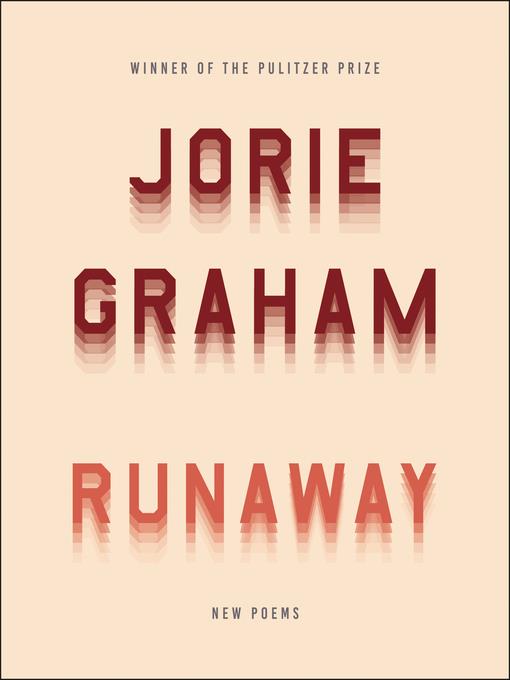
Runaway
New Poems
کتاب های مرتبط
- اطلاعات
- نقد و بررسی
- دیدگاه کاربران
نقد و بررسی

August 28, 2020
Pulitzer Prize winner Graham's poems are like those of John Donne and E.E. Cummings but on speed dial. Like Donne, Graham seeks to encounter the metaphysics of everything. Like Cummings, she writes high-spirited lines with little punctuation, which, although confusing, makes the words move fast. Her use of enjambment serves to quicken the pace of these collage-like, metaphysical poems. In addition, most of her poems are long-lined, which make them seem perhaps more difficult than they are. One of the most challenging yet easily the best of the collection, "Sam's Dream," arises from a mother speaking to her unborn child and offers an exquisite meditation on the meaning of birth, life, and maternal love. Throughout, Graham's style relies on ambiguity, mixed metaphors, and repetition (again like Cummings). Her love of wordplay is evident in her title, which implies not just a fugitive (like her father, whom Graham says ran away from his Southern roots) but the out-of-control events the poems chart: climate change, political unrest, her own and her mother's health problems, and her father's death. VERDICT Donne's phrase "the vale of soul-making," quoted by Graham in an interview, aptly suggests the terrain of these poems; challenging as they are, many of them seem like prayers. For all poetry fans. --C. Diane Scharper, Johns Hopkins Univ., Baltimore, MD
Copyright 2020 Library Journal, LLC Used with permission.

Starred review from September 21, 2020
Graham (Fast) begins her fifth decade of publishing with a bravura performance that probes the present for what the future will bring. In four sections of long-lined poems, many of which run two-to-four pages in length, moments that are seen, felt, and processed dazzle the reader. Graham sets the stage in the first line of the opening poem: “After the rain stops you can hear the rained-on.” The poem’s final image is both artificial and natural: “nothing to touch/ where the blinding white thins as the flash moves off/ what had been just the wide-flung yellow poppy.” Other poems include texting abbreviations (“u” and “yr”), and by the end, the reader’s world feels virtual. The second to last poem, “In the Nest,” has the speaker saying goodbye to “Mother”: “I tap/ again only to see your/ face erase itself//...An arrow points/ as I descend again/ into your room/ from the sensor// in your ceiling// watching u./ We think this is/ the past.” The book ends with a plea from the Earth to “Re-/ member me.” Through her signature urgent questioning, Graham makes plain the psychic and physical cost to humans of wrecking the Earth.

























دیدگاه کاربران